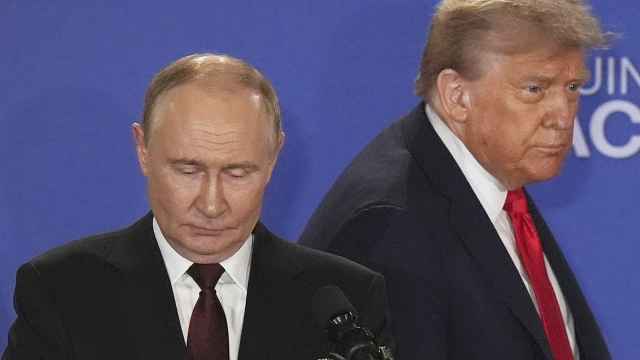The Federal Customs Service and international express shipping companies reached an agreement on Tuesday that will allow Russian residents to receive items sent from abroad weighing less than 10 kilograms and valued under 200 euros ($273) without paying duties.
Customs chief Andrei Belyaninov told Prime Business News Agency that the parties had agreed and that recently increased paperwork requirements for parcels to clear customs would be removed by Jan. 29. He also said that new measures would be instituted to facilitate the work of express shipping companies, though he did not elaborate.
Major international courier firms such as DHL, DPD and FedEx canceled their express shipments to individuals in Russia last week after finding out that they would require registration with Russian customs and a substantial increase in documentation. Online retailers such as the Amazon-owned Shopbop.com also stopped shipments to Russia.
Mikhail Yevrayev, deputy head of the Federal Mass Media Inspection Service, said that over the course of the next two weeks the express shipping companies would be allowed to register their parcels electronically rather than individually, Interfax reported.
A spokeswoman from DHL confirmed the news of the agreement with customs authorities to The Moscow Times but said that the company would issue a statement on Wednesday.
Authorities had announced a 30 percent duty on shipments worth more than 150 euros, while duties were previously only applied to parcels worth more than 1,000 euros or weighing more than 31 kilograms. The new restrictions were devised by customs authorities in concert with the Association of Online Vendors, which represents domestic online stores. Some e-commerce experts said the move was an effort to protect the local market.
Annual growth of e-commerce in Russia is between 25 and 30 percent, according to a study by the Higher School of Economics in November.
Contact the author at [email protected]
A Message from The Moscow Times:
Dear readers,
We are facing unprecedented challenges. Russia's Prosecutor General's Office has designated The Moscow Times as an "undesirable" organization, criminalizing our work and putting our staff at risk of prosecution. This follows our earlier unjust labeling as a "foreign agent."
These actions are direct attempts to silence independent journalism in Russia. The authorities claim our work "discredits the decisions of the Russian leadership." We see things differently: we strive to provide accurate, unbiased reporting on Russia.
We, the journalists of The Moscow Times, refuse to be silenced. But to continue our work, we need your help.
Your support, no matter how small, makes a world of difference. If you can, please support us monthly starting from just $2. It's quick to set up, and every contribution makes a significant impact.
By supporting The Moscow Times, you're defending open, independent journalism in the face of repression. Thank you for standing with us.
Remind me later.





